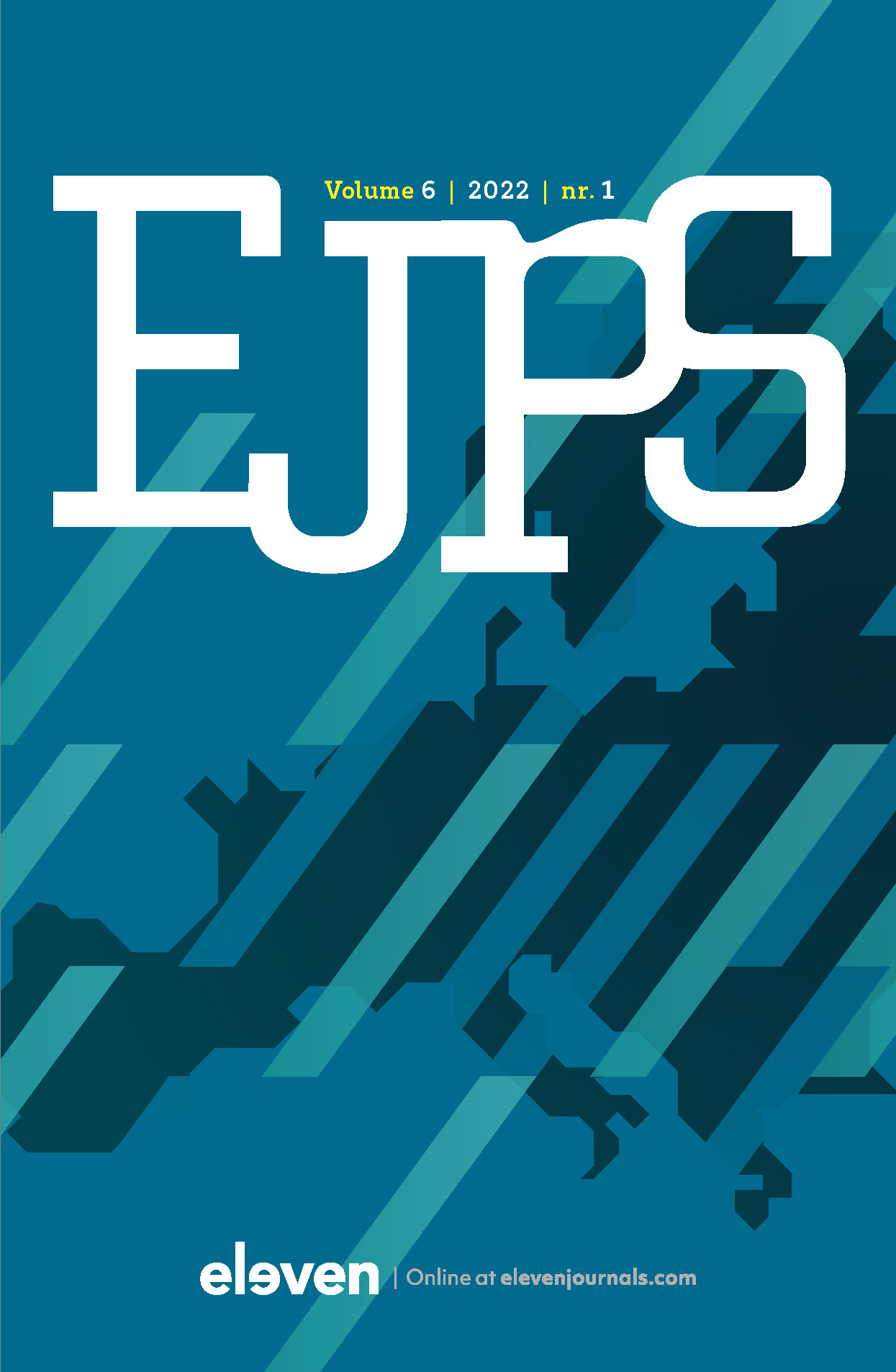|
This article offers a critical assessment of the Cambridge Crime Harm Index (Cambridge CHI) and other, similar indices that claim to measure harm from crime. Such indices use the length of prison sentences (derived from sentencing guidelines or sentencing data) given to offenders for specific crimes as a metric of the relative harm created by these crimes. The article shows how crimes that are different in nature count as creating equal amounts of harm and criticizes the fact that proponents of CHIs do not discuss the validity of their metric in any detail. Prior critiques of CHIs are reviewed, and the article discusses whether the Cambridge CHI actually passes a “three-pronged test” proposed by the creators of the index. The article reviews a number of claims that the Cambridge CHI rests on and concludes that such indices do not offer valid measurements of crime harm. |


European Journal of Policing Studies
About this journalSubscribe to the email alerts for this journal here to receive notifications when a new issue is at your disposal.
| Article |
Crime Harm Indices: Valid Instruments for the Measurement of Harm from Crime? |
| Keywords | penalty value, CCHI, construct validity, police, crime harm |
| Authors | Lars Holmberg |
| AbstractAuthor's information |
| Article |
Port in an E-StormExploring Awareness of State-Sponsored Cyber-Threats and -Attacks in the Port of Rotterdam and North Sea Canal Area |
| Keywords | awareness, cyber-resilience, cyberthreats, port security, state-sponsored cyberattack |
| Authors | Bibi Kok, Yarin Eski and Mauro Boelens |
| AbstractAuthor's information |
|
Cyberattacks on European ports have increased recently, especially since the war in Ukraine. Public and political concerns exist about ports becoming victimized by state-sponsored cyberattacks. As ports depend heavily on interconnected technology, attacking a single port facility damages the entire port sector and other connecting sectors. Cybersecurity literature acknowledges that these attacks are often a result of human behaviour, making humans the weakest link in the cybersecurity chain. Specific knowledge on how human behaviour and cognitive constraints relate to (awareness of) cyberattacks on ports remains undeveloped. This article therefore considers the status quo of cyberthreat awareness within the Port of Rotterdam and North Sea Canal Area/Port of Amsterdam as important European gateways to discover how awareness of cyberthreats and attacks relates to ports’ cyber-resilience. Interviewed (port) security experts and employees argued the lack of cyberthreat awareness is caused by 1) rapid technological developments in a traditional sector, 2) cybersecurity versus economic interests and 3) inactive partnerships. |
| Article |
Changes in Personality and Hardiness over the Course of Police Training |
| Keywords | personality, Big Five, hardiness, police students, police |
| Authors | Patrick Risan and Tom Hilding Skoglund |
| AbstractAuthor's information |
|
The purpose of this study was to explore whether hardiness and Big Five personality trait levels of students would change during the Norwegian bachelor programme in policing. The police students (n = 57) were assessed with the measures of BFI-20 and DRS-15-R at the beginning (Time 1) and on completion of their training (Time 2), as were a comparison group of psychology bachelor students (n = 40). The results revealed some differences in the scores between the study groups, where the most significant finding was that police students reported higher mean levels of the emotional stability personality trait compared with psychology students. Moreover, whereas the police students reported several mean-level changes when comparing the personality trait and hardiness scores obtained at the beginning and end of the study programme, such changes were not witnessed by the psychology students. Lastly, the findings revealed that the scores on the personality traits of agreeableness and emotional stability underwent significantly different change patterns when comparing the student groups. Police and psychology students reported opposing changes on these traits, respectively, a decrease and an increase. We conclude that the bachelor programme in policing seems to influence the student’s personality characteristics. |
| Article |
Evidence-Based Policing and McDonaldization: Scientification of the Police and Irrationalities |
| Keywords | evidence-based policing, McDonaldization, police research, police professionalization, rationalization |
| Authors | Jan Terpstra |
| AbstractAuthor's information |
|
In this article, evidence-based policing (EBP) is understood as a double form of McDonaldization. The core elements of McDonaldization as distinguished by Ritzer can be found in both EBP research and in how EBP envisions the relations between research and police practice: a strong focus on effectiveness, much emphasis on quantification and predictability and a strong emphasis on control of human behaviour. In line with Ritzer’s theoretical approach, in both EBP research and in the relations between EBP research and police practice, important irrationalities can be found. As a result, the terms McScience and McPolice seem to be justified. Although since its early years broader definitions of EBP have been evolving, the core elements of EBP as they were defined have remained intact. Given the instrumentalist core assumptions of EBP, broader definitions of EBP will not suffice to make an end to the irrationalities of EBP research and of the EBP scientification of the police. Finally, the article makes a proposal for an alternative approach to police-oriented research. |

